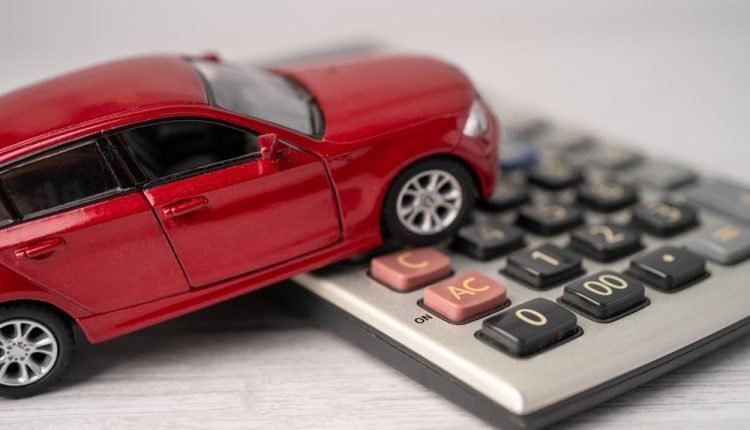
Auto Financing Drops for 26th Consecutive Month in Pakistan
The downward trend in auto financing continues in Pakistan, marking the 26th consecutive month of decline as of August 2024. Auto financing, which plays a vital role in supporting car sales, has been on a steady decline since the pandemic and the subsequent economic downturn. While car sales have slightly rebounded, the auto loan sector remains in turmoil, impacting both consumers and the auto industry as a whole.
According to the State Bank of Pakistan (SBP), the total volume of car financing in August stood at Rs. 227.3 billion, compared to Rs. 228 billion in July. This represents a sharp decrease of Rs. 140.7 billion from the all-time high of Rs. 368 billion reached in June 2022.
The Economic Factors Behind the Decline
Several factors contribute to the ongoing drop in auto financing. High borrowing costs, driven by elevated interest rates, have made it increasingly difficult for consumers to afford auto loans. Additionally, fiscal consolidation measures have further strained consumer purchasing power, leading to a reduced demand for car financing. Year-on-year, auto financing saw an 18.25% drop, falling from Rs. 278.05 billion in August 2023 to the current Rs. 227.3 billion.
The decline in auto financing has not only impacted consumers but also reverberated throughout the automotive industry. The prolonged slump has led to a slowdown in production, job cuts, and a general contraction within the sector. Many car manufacturers have had to either scale back their operations or consider shutting down plants altogether.
Interest Rate Cuts: A Slow Recovery?
In an effort to stimulate borrowing, the SBP has been cutting interest rates since June 2024. The central bank reduced the interest rate from 20.5% in June to 19.5% in July, followed by a further cut to 17.5% in September. Despite these rate cuts, the recovery in the auto loan market has been sluggish. Private-sector borrowing, including auto loans, has yet to show a significant uptick.
While these reductions aim to improve credit conditions, they have not been enough to trigger a substantial revival in the auto financing sector. Consumers remain hesitant to take out loans due to economic uncertainty and high borrowing costs that still persist despite rate cuts.
Auto Sales: A Slight Rebound Amidst the Slump
Although auto financing continues to decline, car sales have shown some signs of recovery. According to the Pakistan Automotive Manufacturers Association (PAMA), car sales experienced a 1% increase in August, with local car assemblers selling 8,699 units, compared to 8,589 units in July.
- July car sales saw a significant drop of 36% due to various factors, including higher prices and inflationary pressures.
- Year-on-year, car sales have shown a 15% increase, with 8,699 units sold in August 2024 compared to 7,579 cars during the same period in 2023.
This marginal recovery in car sales is a positive sign for the industry. However, it does not yet reflect a full turnaround, as the majority of consumers remain on the sidelines due to financial constraints.
The Broader Impact on the Auto Industry
The decline in auto financing has had far-reaching consequences for Pakistan’s auto industry. The slowdown in auto sales has forced manufacturers to reduce production, resulting in job losses across the sector. Several companies have announced plans to either scale back or entirely shut down their operations in the face of dwindling demand.
- Auto manufacturers have reduced their workforce and cut production schedules to manage lower sales volumes.
- Supply chain disruptions, coupled with the decline in financing, have further exacerbated the challenges faced by the industry.
Challenges Faced by Auto Manufacturers
The persistent decline in auto financing, coupled with rising input costs, has placed significant pressure on local car manufacturers. Many companies are facing difficulties maintaining their production lines, leading to lower output and further job losses.
- Manufacturers are grappling with increased raw material prices due to global supply chain disruptions.
- The lack of consumer purchasing power and reduced loan approvals has strained manufacturers’ ability to generate revenue.
Conclusion
In conclusion, the continued drop in auto financing over the past 26 months has had a profound impact on Pakistan’s automotive sector. While there are slight improvements in car sales, the overall outlook remains bleak as borrowing costs, fiscal measures, and economic instability weigh heavily on consumer demand. The recent interest rate cuts offer some hope for recovery, but a significant turnaround in the auto financing industry is yet to be seen. The future of Pakistan’s auto industry will largely depend on how quickly these economic factors stabilize and whether consumers regain the confidence to invest in new vehicles.
Stay connected with Auto 2000 and get the latest updates on new products, promotions, and industry news. Find us on Facebook, Instagram, YouTube, and Tumblr!












LEAVE A COMMENT